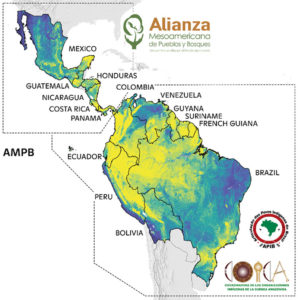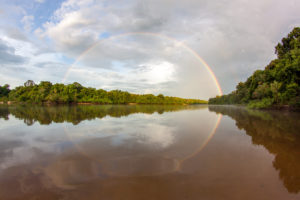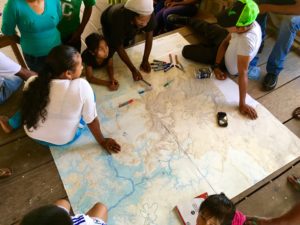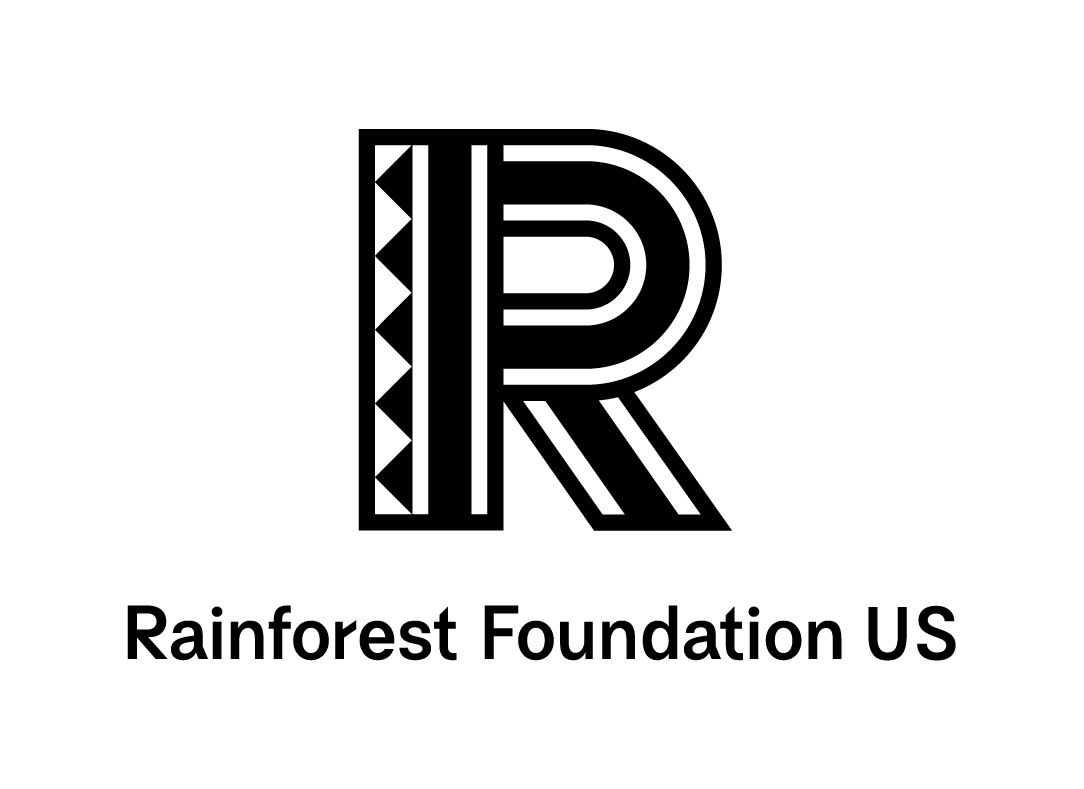- Concessions extended to miners prior to the issuance of land titles in 2007 have led to heavy mining and destruction in Isseneru village, Guyana.
- Guyana’s indigenous peoples are pushing for revisions to the Amerindian Act, the federal law that outlines their rights.
- Proposed changes include the right to collective territory and upholding indigenous groups’ land titling to fight extractive industries.
- In Northern Guyana’s Isseneru community, these changes could mean the ability to fight gold mining that poisons their water and destroys their forest.
Dwight Larson still remembers how excited he was when his village of Isseneru, in the heavily forested interior of Northern Guyana, got their land title from the federal government in 2007. Only 17 years old at the time, Larson was already doing advocacy work for his Akawaio community, and he believed the title would portend a sea change: his people would have control of their territory, ensuring their safety and the safety of their forests.
Not so.
“There were exemptions,” Larson says. “For gold miners. We had to learn that the hard way.”
According to Larson, who serves as a project officer for the Amerindian Peoples Association (APA), soon after receiving their title, forest destruction was worse than ever before. Miners who had received land concessions from the federal government before Isseneru’s land title was issued were soon poisoning Isseneru Creek with mercury, used heavily in gold mining, killing both the fish in the water and the majestic hardwood forest.
The problem faced by Larson’s community and throughout Guyana is the same in so many forested countries: indigenous peoples are vulnerable to having their land rights violated and their natural resources destroyed. The laws don’t adequately protect them.
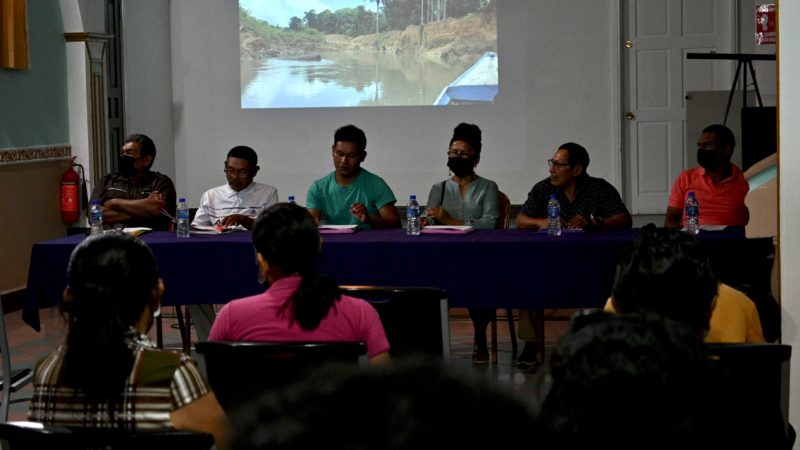
But there is some cause for hope. According to a recent ruling by the Inter-American Commission on Human Rights, the Guyanese government violated rights in Isseneru. The ruling—which has been kept confidential, but was reported by Guyana’s Stabroek News—was celebrated by the Isseneru Village Council, who in a statement said, “While the decision provides us with a sense of relief, we will not be satisfied until significant steps are taken by the government to address the blatant and now validated violations of our rights and the rights of other Indigenous peoples across Guyana who are faced with similar situations.”
Chief amongst the council’s demands are a revision to the Amerindian Act—the federal law which enshrines indigenous peoples’ rights in Guyana, but which is woefully weak.
Attorney Lan Mei of the Forest Peoples’ Program collaborates with Rainforest Foundation US (RFUS) in support of indigenous peoples’ rights in Guyana.
“The act, as originally drafted, wasn’t written to provide the protections that it should,” Mei says.
According to Mei, some of the changes being proposed by villages include:
- Allowing villages to jointly hold title, so that the federal government can acknowledge that historically, indigenous peoples have held territory collectively;
- Eliminating a clause in the act which allows the federal government to override the will of indigenous communities in mining matters on titled land; and
- Allowing district councils to hold land.
District councils are regional-level indigenous peoples’ organizations in Guyana, and their right to collective territory would greatly strengthen control over their lands and resources, allowing indigenous peoples to more effectively organize.
Finally, in cases like Isseneru, the amendment would recognize the pre-existing rights of indigenous peoples to their lands, so that when land titles are granted, people occupying the indigenous lands—like gold miners—would be obligated to restore the degraded land, pay restitution, and leave.
“The way the law is currently interpreted, it’s like the government is granting a privilege when indigenous peoples receive their land title. But these titles aren’t a privilege; they’re their right,” says Mei.
For now, Larson says, Isseneru’s situation is bleak.
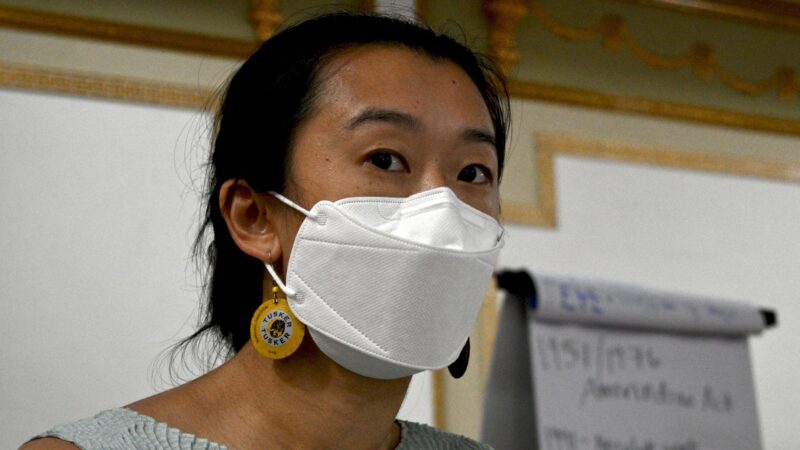
“The mining is so close to the center of the village that you can actually feel it in your body,” says Larson. “The situation is terrible.”
Guyana is one of the most heavily forested countries in the world and home to much of the Guiana Shield, an eco-region of more than 1 million square miles (270 million hectares). The Guiana Shield consists mainly of dense tropical rainforest and open savannahs and provides an important buffer against climate change. Its deforestation could lead to drought throughout the Amazon basin, drying up precious rainforest and turning it into savannah, thereby accelerating climate change throughout the rest of the world. Deforestation in Guyana is more likely to occur now than ever before due to the 2015 discovery of offshore oil deposits, which will likely result in the federal government investing in transportation infrastructure for the nation’s interior, which would ease and thus incentivize extractive industries.
Indigenous peoples in Guyana consistently protect rainforests at a greater rate and more cost effectively than other public and private entities, including protected areas.

